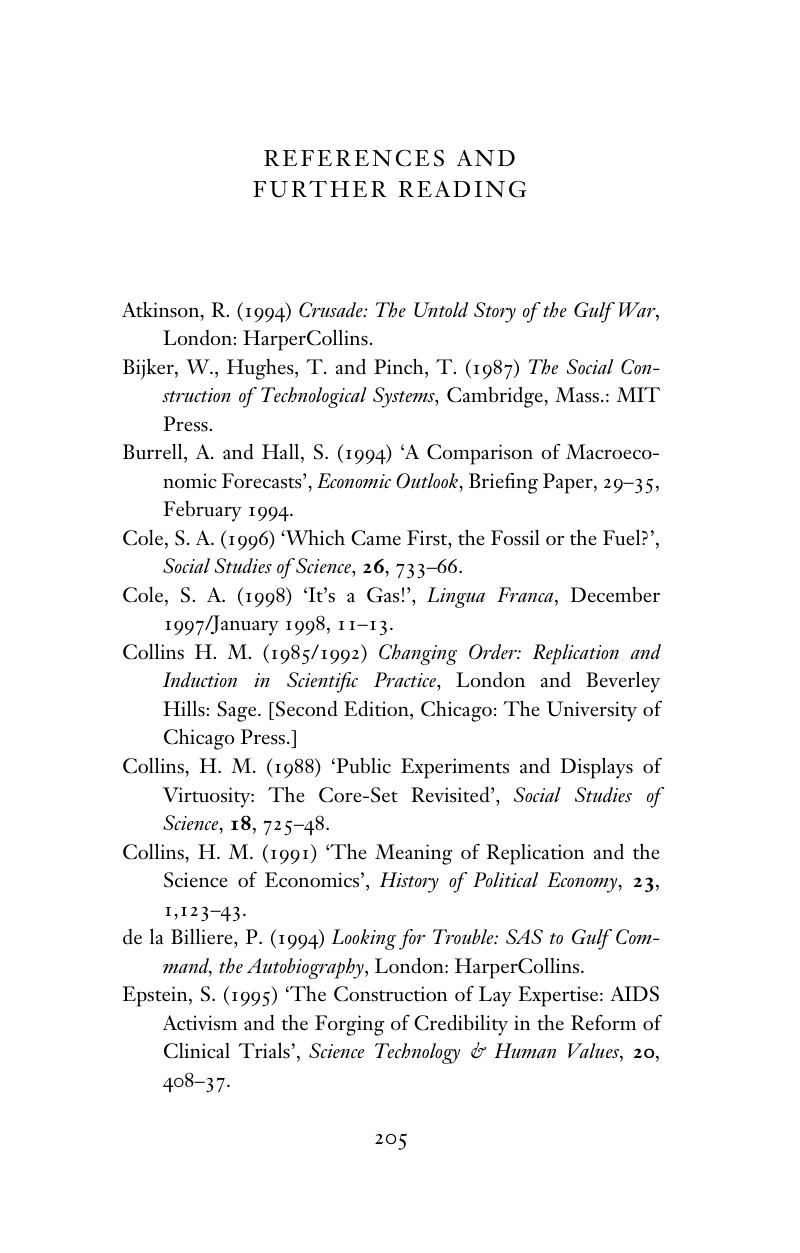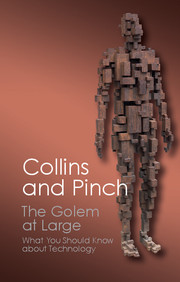Book contents
- Frontmatter
- Dedication
- Contents
- Preface and acknowledgements
- Introduction: the technological golem
- 1 A clean kill?: the role of Patriot in the Gulf War
- 2 The naked launch: assigning blame for the Challenger explosion
- 3 Crash!: nuclear fuel flasks and anti-misting kerosene on trial
- 4 The world according to Gold: disputes about the origins of oil
- 5 Tidings of comfort and joy: Seven Wise Men and the science of economics
- 6 The science of the lambs: Chernobyl and the Cumbrian sheepfarmers
- 7 ACTing UP: AIDS cures and lay expertise
- Conclusion: the golem goes to work
- References and further reading
- Index
- References
References and further reading
Published online by Cambridge University Press: 05 June 2014
- Frontmatter
- Dedication
- Contents
- Preface and acknowledgements
- Introduction: the technological golem
- 1 A clean kill?: the role of Patriot in the Gulf War
- 2 The naked launch: assigning blame for the Challenger explosion
- 3 Crash!: nuclear fuel flasks and anti-misting kerosene on trial
- 4 The world according to Gold: disputes about the origins of oil
- 5 Tidings of comfort and joy: Seven Wise Men and the science of economics
- 6 The science of the lambs: Chernobyl and the Cumbrian sheepfarmers
- 7 ACTing UP: AIDS cures and lay expertise
- Conclusion: the golem goes to work
- References and further reading
- Index
- References
Summary

Information
- Type
- Chapter
- Information
- The Golem at LargeWhat You Should Know about Technology, pp. 205 - 208Publisher: Cambridge University PressPrint publication year: 2014
